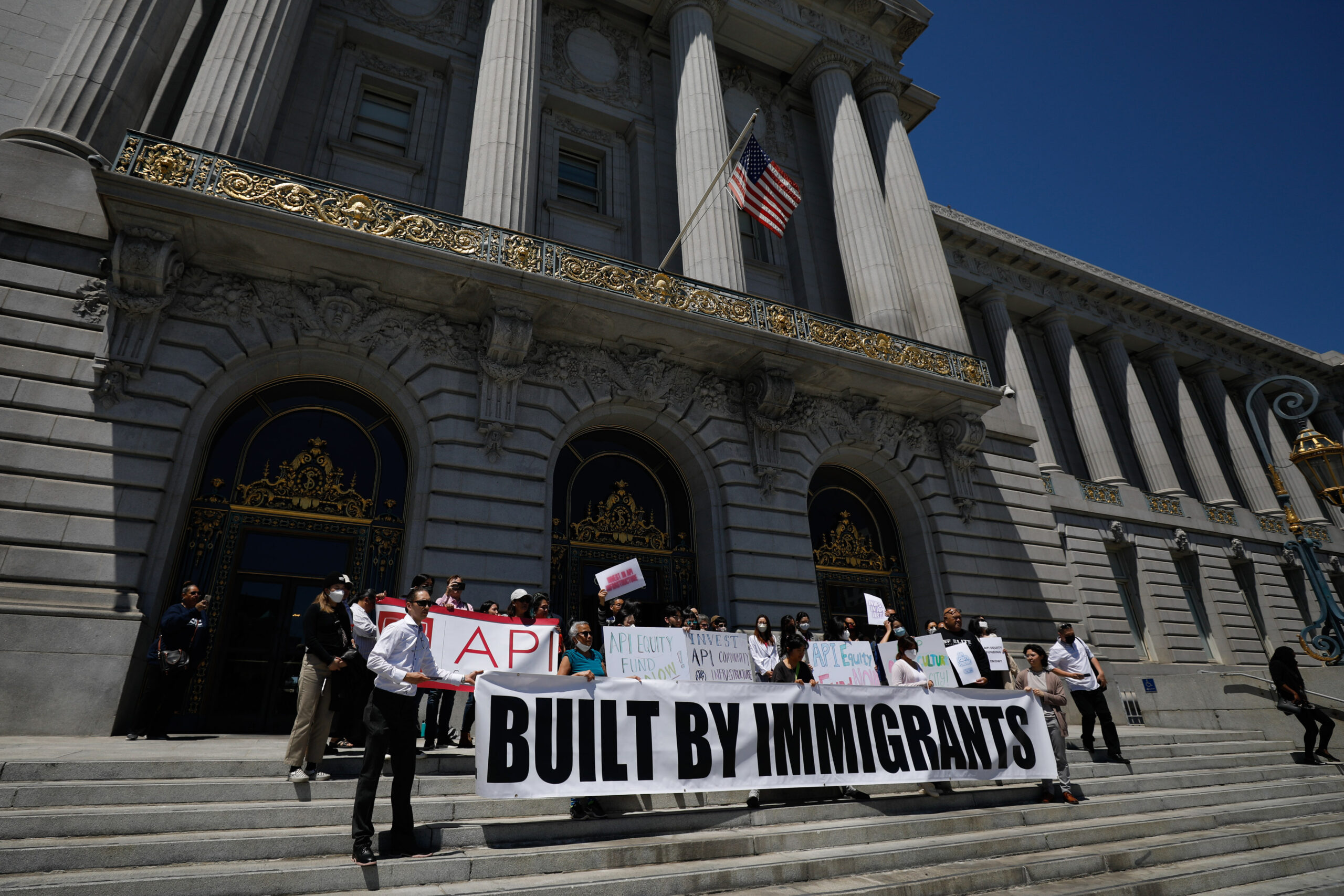After Mayor London Breed declined to carve out $100 million in her spending plan for reparations requested by a coalition of Asian American groups, four supervisors want to tap city reserves to fund the community’s ask.
The call for reparations stems from a resolution the city passed earlier this year to officially apologize to the Chinese community for past racist policies such as the Chinese Exclusion Act. But some political leaders and AAPI nonprofits said they want more than just an apology and urged the city to go beyond verbal consolation.
“We have to actually put our money where our mouth is,” Supervisor Aaron Peskin said. “Apologizing is easy, but paying for it is more difficult.”
The supervisors are asking for $118 million in two years to create the “API Equity Fund”—an $18 million increase from the original proposal by the API Council.
Under the plan being floated this week, the money will be used for buying land and bankrolling construction projects, among other things, according to Supervisor Connie Chan, who introduced the ordinance.
Chan said the property purchases and investments in the AAPI nonprofits will allow them to “gain economic stability and remain rooted in the communities” they serve.
The proposed funding represents a one-time investment spread out over the next two years.
Supervisor Gordon Mar and Ahsha Safai—along with nonprofit leaders from the Chinese, Vietnamese, Filipino and Samoan communities—attended a rally Tuesday to voice support for the plan.
Breed, however, opposed the method of tapping into the general reserve for the proposed funding, instead emphasizing that the current investment in the AAPI community has been “significant.”
“Using our reserve could jeopardize our city’s long-term fiscal health, especially with great uncertainties around our economy ahead,” Mason Lee, a spokesperson for Breed, said in a written statement.
Lee said that Breed’s budget decision is “fiscally responsible for all San Franciscans” and said that the mayor and the city have long been committed to supporting API community organizations.
Lee added that Breed’s budget has funded about $3.5 million of proposed services and community programs from the API Council’s ask and another $3 million for the AAPI organizations outside of the council’s list. According to Lee, current active contracts between City departments and organizations within the API Council total over $268 million, with at least $100 million in remaining contract spending available.
After its introduction Tuesday at the Board of Supervisors, the legislation will head to the budget subcommittee in July for discussion, amendment and initial decision. It will need six votes to pass the full board—or eight votes to override a mayoral veto.
